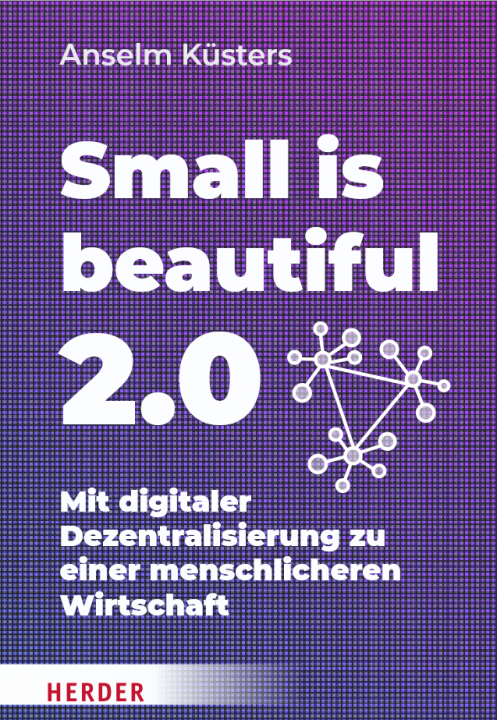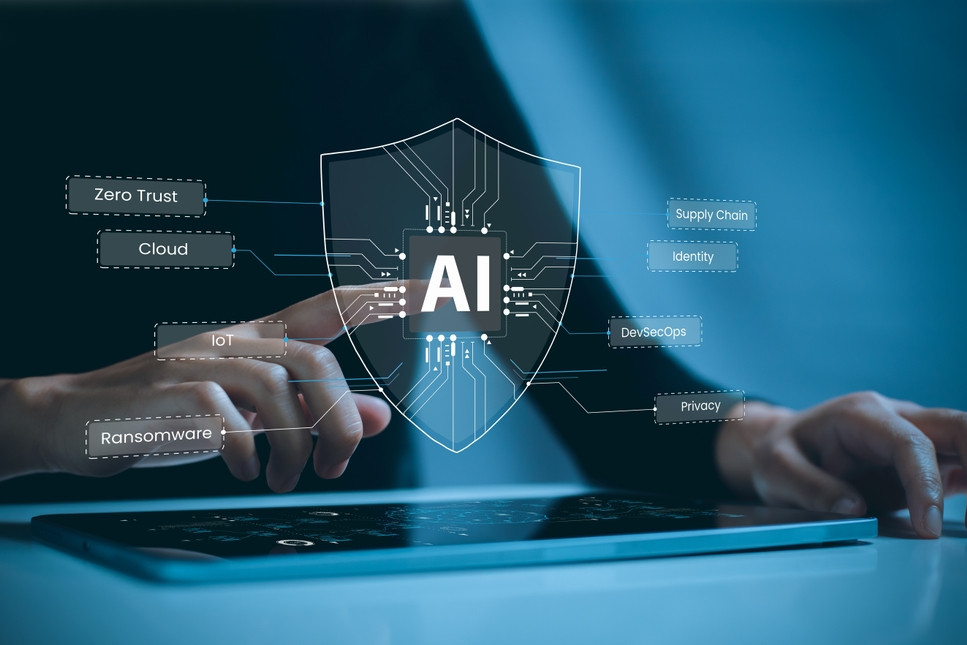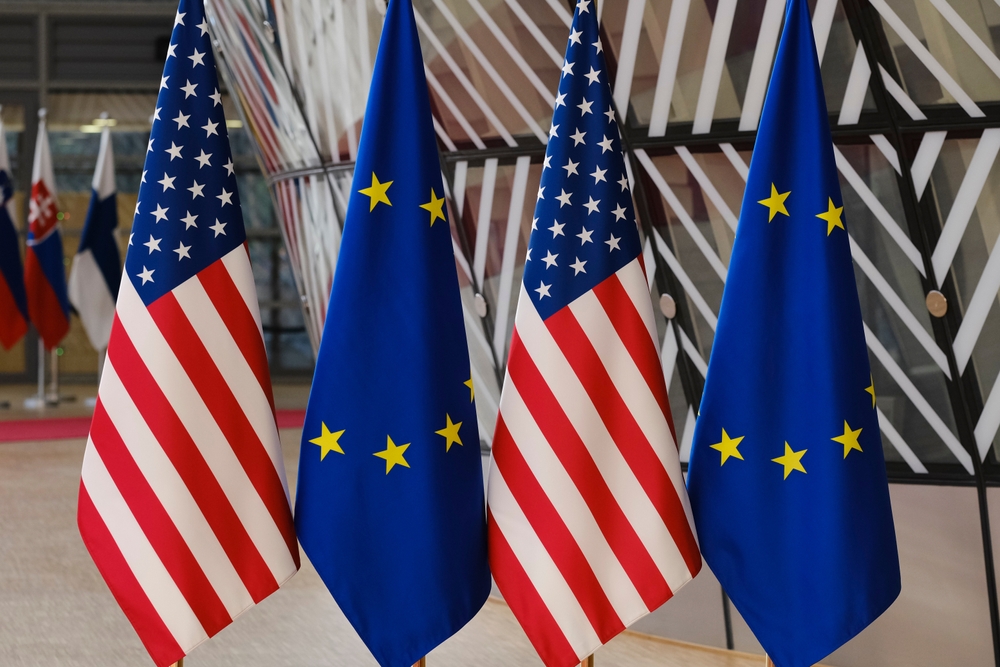When Fritz Schumacher challenged the dogma of large-scale industry with Small Is Beautiful in 1973, many dismissed him as an idealist. Yet today, his vision feels remarkably contemporary in light of digitalisation, as I argue in my new book Small is Beautiful 2.0. Born in Bonn in 1911 and later a leading British economist, Schumacher saw small, local units as the foundation of a sustainable future for people and the planet. Digitalisation not only gives Schumacher’s ideas new relevance, but also a new form. Digital decentralisation promises to redefine economic structures and, as a result, to strengthen democracy.
From Workbench to Open Source
Schumacher advocated a return to the “human scale,” meaning smaller and more humane economic structures to curb the excesses of large-scale industrialisation. Numerous researchers and institutions, such as the Open Markets Institute, have shown how today’s extreme market concentration reduces the availability of essential food and raw materials, raises prices, blocks innovation and competition, and distorts democratic discourse. Schumacher’s understanding of the economy as a societal pillar remains highly relevant and recalls the ordoliberal teachings of German economists in the Weimar Republic. Back then, far-reaching cartelisation and monopolisation, combined with political instability, led to a dramatic loss of democratic control. Early advocates of the social market economy model, such as Walter Eucken and Franz Böhm, therefore concluded that democracy can only function if economic power is restrained by strong competition law.
Today, digitalisation opens new pathways to re-distribute economic power from the bottom up, without an overstretched state having to intervene daily with the sword of competition policy. In a world marked by geopolitical tensions, limited cross-border cooperation, and tech monopolists who pay fines out of petty cash, open source solutions offer a compelling alternative: they preserve the independence of smaller actors and restrain Big Tech. A 2021 study estimated that open source contributes €95 billion annually to the EU economy. Examples such as the Mozilla Firefox browser, the Apache Hadoop file system, or the WordPress content-management system demonstrate that valuable, collaboratively developed technologies can be accessible to all without expensive proprietary tools. Open source fosters innovation, competition, transparency, and cooperation. Developers can share knowledge, fix bugs together, and strengthen cybersecurity collectively.
The best-known example of decentralising economic power through open source technology is the blockchain platform Ethereum. Launched in 2015 by Russian-Canadian programmer Vitalik Buterin, Ethereum quickly became a leading platform for decentralised applications. It enables financial services, such as loans and investments, without traditional banks. Smart contracts, self-executing agreements embedded directly in code, also run on Ethereum. This decentralisation disperses financial power more broadly, reducing the risk of “too big to fail” crises and, in authoritarian states, the risk of expropriation. Blockchain technology can also be applied in other democracy-relevant areas, such as supply-chain management or voting systems.
Small Is Powerful
Digital technologies enable small companies to operate globally and create a kind of “economic democracy” in Schumacher’s sense, where not only large players dominate. One example is synthetic data, which allows start-ups and SMEs to perform data analysis without relying on the massive datasets held by big corporations. This is particularly valuable in Europe, where strict data-protection rules make data storage more difficult.
Crowdfunding platforms like Kickstarter or Patreon allow creators to fund projects directly through their communities. This direct relationship between producers and consumers strengthens democracy by shifting decision-making power to citizens. Democratised finance gives innovative and socially relevant projects a chance beyond the profit logic of large corporations. For instance, the sustainable smartphone Fairphone was made possible through crowdfunding; upon the release of its second model, German IT magazine c’t headlined: “More fairness on the assembly line.” Similarly, decentralised marketplaces or platforms like Etsy enable independent microbrands to reach consumers without expensive middlemen.
As Cory Doctorow and Rebecca Giblin describe in Chokepoint Capitalism, large tech companies have created “bottlenecks” allowing them to control access to markets and resources such as user data. It is telling that the fate of the U.S. stock market index recently depended almost entirely on the performance of a few tech giants like Apple, Amazon, and Microsoft. By exploiting their self-created chokepoints, these corporations can dictate the rules and marginalise independent creators and small companies. Crowdfunding and direct-to-consumer distribution, however, offer digital tools to bypass these barriers.
Sustainable in Every Respect
Schumacher was an early thinker of sustainability and argued that industrial production must respect the natural limits of the environment. His warning is more relevant than ever, considering today’s trend toward ever larger and more energy-hungry language models trained in enormous data centres. These models consume vast amounts of energy, water, and, due to their chip requirements, rare raw materials. The concentration of often illegally scraped texts in a handful of models owned by large corporations like OpenAI risks monopolising knowledge, deepening the digital divide and, if web search is replaced by platform-based systems, reshaping access to information.
At the same time, progress is being made with smaller, more efficient language models. Systems such as Phi-3, although less powerful in parameter count, run on less advanced devices in regions like Africa and Asia and achieve similar quality with significantly lower energy usage. Comparable developments include DeepSeek’s efficient open-source models from China and Samsung’s recursive reasoning models, which solve complex problems with far less computational power through repeated self-reflection. True to Schumacher’s vision of a decentralised and sustainable economy, such models could give small businesses and low-income individuals access to advanced AI without creating new dependencies. This reduces environmental impact, boosts competition, and brings alternative perspectives into an AI ecosystem long dominated by Western and male voices.
Beyond today’s hype around language models, digital technologies offer many tools to increase efficiency. Drones, sensors, and algorithms help optimise water, fertiliser, and pesticide use. In an experiment at UC Berkeley, a garden robot reduced water consumption by 44%. This kind of precision agriculture fits perfectly with Schumacher’s vision of resource-efficient production, while reducing costs. It also strengthens democracy, much like decentralised solar energy systems, by enabling local communities to manage their own resources. After production, digital platforms strengthen circular-economy practices. Online marketplaces for used goods, recycling apps, and co-sharing platforms reduce waste. The EU’s planned Digital Product Passport is particularly promising, providing greater transparency over product lifecycles and promoting more conscious consumption.
The Return of Analog Humanity
The digital economy has undeniable advantages but also brings risks: it can create alienation and virtual filter bubbles that enable authoritarian tendencies. Schumacher warned of the dehumanisation of work and called for workplaces and modes of production that put people at the centre. During the 1950s, as chief economist of the British Coal Board and after a formative trip to Burma, he developed the concept of “Buddhist economics,” which views meaningful work, local production, and human development as inseparable.
Today, the growing “Uberisation” of work and the widespread feeling of powerlessness in algorithmic systems threaten political stability. Schumacher would have reminded us that work is not just a means of earning money but also has essential social and psychological functions. While digital platforms make access to products and services easier, personal relationships are often lost. To counter online anonymity, digital marketplaces could integrate features like “Buy Local” or “Meet the Supplier.”
Another challenge is that elites can increasingly afford manual alternatives to rigid and reductive AI systems, while the rest of society is exposed to automated control mechanisms. Maroussia Lévesque calls this phenomenon “analog privilege”, i.e. the ability of wealthier individuals to escape invasive monitoring such as smart wristbands in warehouses or productivity software in offices. In a digitalised economy, people must not be reduced to cogs in a machine but must retain the ability to act meaningfully. A combination of mass surveillance and automation on the one hand and privileged exceptions on the other undermines the foundation of democracy. Stronger user participation through digital decentralisation, for example crowdsourced online dispute resolution or co-designed rating algorithms in the gig economy, could help protect the dignity of work and ensure equal opportunities in the digital economy.
A Democratic Future for the Small
Yet discussions about economic democracy often focus on two other approaches: de-growth and the nationalisation of large corporations. De-growth, i.e. the deliberate shrinking of the economy, may seem environmentally sound but risks stifling innovation and causing economic stagnation, conditions that historically fuel populism and xenophobia. Nationalisation promises more control but risks simply shifting power from one actor to another, without real change. Both approaches lack the dynamism and future-orientation that a diversified, decentralised economy can offer. This is where Schumacher’s vision shines: an economy built on small enterprises and individual initiative fosters innovation, sustainability, and democratic resilience.
Today’s digital technologies give us the tools to apply many of the principles Schumacher promoted in Small Is Beautiful in a modern way. To make democracy thrive again, we do not need a smaller economy, we need smaller, digital businesses.

The full article in German is available here.

Anselm Küsters is Head of Department of Digitalisation/New Technologies at the Centre for European Policy (cep), in Berlin. As a postdoctoral researcher at the Humboldt University of Berlin and an associated researcher at Max Planck Institue for Legal History and Theory in Frankfurt am Main, he conducts research in the field of Digital Humanities.
Küsters holds a Master's degree in Economic History from the University of Oxford (M.Phil) and a PhD from Johann Wolfgang Goethe University in Frankfurt am Main.
Copyright Header Picture: shutterstock / Copyright: Herder
Könnte Sie auch interessieren
2. Februar 2026
The Transatlantic Partnership Is Not Dead
But Europe Must Stop Talking Itself Down to Ensure its Future
20. November 2025


